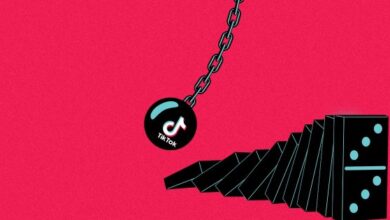The Crisis in Marketing Education and How the Mini MBA Does It Differently

Welcome to this episode of the Marketing Vanguard podcast. Today, Jenny Rooney speaks with Mark Ritson, marketing education pioneer and founder of Mini MBA, recorded live at Brandweek 2024 in Phoenix, Arizona.
Mark shares his insights on the evolution of marketing education, the gaps between academic theory and industry practice, and his perspectives on marketing effectiveness. The conversation explores the structural challenges of business education, the recent Nike case study, and the future role of AI in marketing strategy.
“The days of teaching in rooms without windows are over,” he said on the podcast. “People of my generation put up with it, but I don’t know if you’ve noticed, someone under 40 is not going to sit in a room for three hours and watch a guy in a suit yell at them.”
Mark spent 25 years as a marketing professor, teaching at institutions including Minnesota, MIT, and universities in London and Australia. About eight years ago, he founded Mini MBA, an alternative education platform that has trained around 35,000 marketers in 40 countries. Its program provides targeted marketing education in an innovative online format, making it accessible to busy professionals who may not have the time or resources for traditional MBA programs.
Key points to remember:
[00:03:01] The Future of Marketing Education — Mark explains how traditional teaching methods are becoming outdated, especially for younger generations. It highlights the need for practical and accessible education, adapted to modern lifestyles. With an average student age of 44, its Mini MBA program features content like Netflix, offering weekly modules that busy professionals can access on their schedule. This approach represents a move away from traditional classroom learning while still preserving the quality of education.
[00:09:52] The crisis in marketing education — Mark reveals a worrying statistic: only 26% of American marketers have formal marketing training. He argues that this lack of fundamental knowledge contributes to the sector’s efficiency problems. However, he also recognizes that traditional business school education may not be the answer, creating a difficult situation that requires structural changes in the way marketing is taught and learned.
[00:11:36] Marketing effectiveness and brand management — Mark points out that many marketers have lost touch with the fundamentals of marketing. Using Nike as a case study, he identifies four key mistakes: moving away from specialist sports products, placing too much emphasis on performance marketing, misinterpreting Covid-era data and neglecting wholesale relationships. He argues that these fundamental errors highlight the importance of maintaining marketing fundamentals alongside modern techniques.




